T. V. Venkatachala Sastry
| T. V. Venkatachala Sastry | |
|---|---|
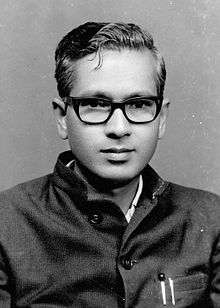 Dr T. V. Venkatachala Sastry, PhD | |
| Born |
26 August 1933 Kanakapura, Bangalore, British India |
| Nationality | Indian |
| Fields | Kannada literature, Kannada grammar, criticism, editing |
| Institutions | Osmania University –Hyderabad, University of Mysore, B. M. Sri Pratisthana, Mulukanadu Mahasangha |
| Alma mater | Maharaja College, Mysore |
| Known for | Mahakavyalakshana (1969), Sreevatsa Nighantu (1971), Mulukanadu Brahmanaru (2000), Udaracharitaru Udattaprasangagalu (2002), Kannada Chandomimase (2003), |
| Notable awards | Kannada State Award (1988), Kannada Sahitya Akademi Award (Hon.) (1997), Bhashasamman (2002), Aryabhata Award (2006) |
| Spouse | Venkatalakshmi |
|
Signature | |
|
Website T. V. Venkatachala Sastry | |
Togere Venkatasubbasastry Venkatachala Sastry (Kannada: ಟಿ.ವಿ.ವೆoಕಟಾಚಲಶಾಸ್ತ್ರೀ) is an acclaimed Kannada writer, grammatician, critic, editor and lexicographer.[References 1][References 2][References 3] He has authored in excess of 100 books, translations and has edited collections of essays, biographical sketches and felicitation volumes.[References 4][References 5] Recipient of the prestigious Kannada Sahitya Akademi Award (honorary), T. V. Venkatachala Sastry is an authority on Kannada language grammar and its various facets ranging from the metre scale (Kannada: ಛoದಸ್ಸು) on which he has written extensively to history of Kannada literature spanning two millennia.[References 6] His book Mulukanadu Brahmanaru is a sociological study of the Mulukanadu community since the early 17th century, outlining their origin, migration and embrace of western education. It records in detail their history with fifty and odd family trees and assumes importance in the field of caste studies. T. V. Venkatachala Sastry was a Kannada professor at the University of Mysore and additionally held the post of Director at "Kannada Adhyayana Samsthe" before retiring in 1994.
Early life
Origins
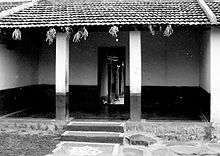
T. V. Venkatachala Sastry was born on the 26th day of August 1933 at Harohalli village in Kanakapura taluk of Bangalore district to Brahmin parents Venkatasubba Sastry and Subbamma. T. V. Venkatachala Sastry belongs to Telugu speaking South Indian "Mulukanadu" sect. His parents had little education and were devotees of the Ramakrishna Order.[References 7]
Education
.jpg)
T. V. Venkatachala Sastry had his primary schooling at Kanakapura near Bangalore. At the age of 15, he finished his Intermediate course in the year 1947–48. From 1948 till 1954, he would spend the next six years pursuing undergraduate and post-graduate degrees at University of Mysore. He joined Yuvaraja College, Mysore in the year 1948 where he came under the influence of noted Kannada professors N. Anantarangachar and U. K. Subbarayachar. In 1950, he joined B. A. (Honours) course in Kannada at Maharaja College.[References 8] Among his teaching faculty were renowned scholars like K. V. Puttappa (Kuvempu) who taught "Pampa Bharata" and "Literary Criticism", D. L. Narasimhachar (History of Literature), S. Srikanta Sastri (Cultural History of Karnataka)(see group photograph), K. V. Raghavachar (Kannada classic – "Basavarajadevara Ragale"), N. Anantarangachar (Kannada Grammar – "Shabdamanidarpana"), T. S. Shamarao (Vachanas of Basavanna) and Parameshwar Bhatt (Bharatesha Vaibhava). He worked on Pampa, Ranna, Harihara, Nemichandra, Raghavanka and Kumaravyasa utilizing ancient texts both from Mysore University library and the Oriental Research Institute, Mysore. He completed his Master of Arts (Kannada) degree from Maharaja College, Mysore in the year 1953–54.
.jpg)
Career
Osmania University
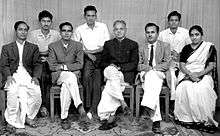
T. V. Venkatachala Sastry began his career as a lecturer at Kanakapura rural college in the year 1955. Later, he shifted to St. Joseph's College, Bangalore in the year 1957 and continued till 1959 as a lecturer there. Subsequently he was appointed as lecturer at Osmania University in Hyderabad, Andhra Pradesh in 1959 where he worked hard to lend shape to the nascent Kannada department.[References 9] In addition to his teaching duties at the University, he also taught at several Women's and Arts Colleges. He involved himself avidly in the affairs of the "Telugu Sahitya Akademi" and during these years put together his "Mahakavyalakshana". He translated Sophocles' "Trakiya Pengal" during his tenure at Osmania University. Later he translated "Prometheus Bound" by Aeschylus into Kannada. His dictionary titled "Sreevatsa Nighantu" took form while at Osmania University. After being transferred from women's college to the University's Post Graduate department, T. V. Venkatachala Sastry involved himself teaching topics like "Kannada Chandassu", Kannada Grammar and "Suktisudarnava". It was during these years that he set out to do doctoral research and this brought him closer to his former teacher and mentor D. L. Narasimhachar. In fact, D. L. Narasimhachar suggested a doctoral work on "Kannada Neminathapurana Tulanathmaka",[References 10] which T. V. V. Sastry took up in earnest. In February 1968, University of Mysore's "Kannada Adhyayana Samsthe" embarked on organising a symposium to celebrate eighth centennial of Basavanna and requested T. V. V. Sastry at Osmania University to pen a paper on "Vachana Sahitya". T. V. Venkatachala Sastry took up the project and mailed back a sixty page write-up which immediately caught the attention of "Kannada Adhyayana Samsthe" director and his former teacher D. Javaregowda who discussed it thence with H. M. Nayak. The litterateurs were suitably impressed and ultimately persuaded T. V. V. Sastry to relocate to University of Mysore. Thus he left Osmania University in 1968 to occupy the post of Lecturer at Mysore University.[References 11]
University of Mysore
T. V. Venkatachala Sastry came to University of Mysore from Osmania University, Hyderabad in 1968 and took up the Lecturer's post in Kannada Department. Under the guidance of his former teacher and mentor D. L. Narasimhachar and H. M. Nayak, he pursued his doctoral work on "A Comparative Study of Kannada Neminathapuranas" and earned his PhD by 1972. Two years hence in 1974, he was made a Reader in the Kannada department - a post he would hold till 1984 whence he was elevated to the post of Professor. He continued as Professor for the next decade until his retirement in 1994. For the last few years of his tenure, he was given additional responsibilities as Director of Institute of Kannada Studies, University of Mysore (1991 - 1993) and later as Dean of Arts (1992 - 1993). Post-retirement Dr T. V. Venkatachala Sastry was visiting Professor for a year (1997) at Kannada University, Hampi. Across four decades of his teaching career, Dr T. V. Venkatachala Sastry has inspired thousands of students with his lucid, authoritative and insightful lectures in the classroom and has guided nine PhD (Doctoral) students so far.[References 12]
Institute of Kannada Studies, Mysore
.jpg)
University of Mysore's Kannada Adhyayana Samsthe's prominent publications such as "Kannada Sahitya Charitre", "Kannada Chandassina Charithre", "Kannada Vishaya Viswakosha", and "Epigraphia Carnatica" owe a great deal to Dr T. V. Venkatachala Sastry's erudition, perseverance and steadfast administrative acumen. His skills as an editor helped assemble and streamline many of these volumes in addition to several felicitation volumes for eminent personalities. Dr T. V. V. Sastry was director between 1991 – 1993 at University of Mysore's "Kuvempu Kannada Adhyayana Samsthe" before occupying the chair of Dean of Arts at the University till 1994. Dr T. V. Venkatachala Sastry was at University of Mysore for 26 years in various positions – Lecturer (1968), Reader (1974), Professor (1984), Director (1991–1992) and Dean of Arts (1992–1993) before retiring in April 1994 at the age of 60 years. He is married to Venkatalakshmi and currently resides at Mysore.[References 13]
Literary Contribution
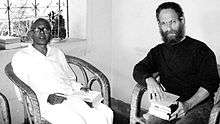
Dr T. V. Venkatachala Sastry's writings span over four decades and number in excess of 100. His writings encompass a range of vistas such as History of Kannada Literature, Prosody, Literary Criticism, Kannada grammar, Kannada Poetry, Dictionary writing & editing, Editorship, Translations and much more.[References 14][References 15] In fact, he was the first to offer an elaborate discussion on Devachandra's Rajavalikathe and Kempunarayana's Mudra Manjusha. His PhD work titled Kannada Neminatha Puranagala Toulanika Adhyayana attracted considerable attention in literary circles. He has authored close to seven works on Grammar, six on Prosody, two on Aesthetics, six different dictionaries on various subjects, twenty four studies on Literary Criticism and Research studies, eleven biographies, twenty two edited volumes and prose works, four translations and four bibliographies in all. In addition to these, he has penned four plays and four collections of Essays which bear testament to his creative brilliance. Various articles on issues of great literary value were collectively brought out in ten volumes under the title of Śāstrīya: Samputagalu 1, 2, 3, 4, 5, 6 which was published in 1999. As an Editor Dr T. V. Venkatachala Sastry has led such distinguished projects as History of Kannada Literature (Mysore University), Revision and Reprint of Epigraphia Carnatica, Kannada Dictionary Project of Kannada Sahitya Parishat, Anthology of Ancient Literature, Revision and Prose Translation of Kumaravyasa Bharata by Kannada Gamaka Parishat and publication of Complete Jaina Literature by Kannada University, Hampi. T. V. Venkatachala Sastry's vast repertoire of knowledge and elaborate writing has attracted scholars from far and wide. Significant among these scholars who came to him were Prof Laurie Honke (Finland), Prof Showman (Canada), Prof Karl Johanssen (U.S.A), Prof Sefan Anacker (Switzerland) and the famous Indologist Prof Sheldon Pollock (U.S.A) (pictured with T. V. V. Sastry).
Research & Literary Criticism
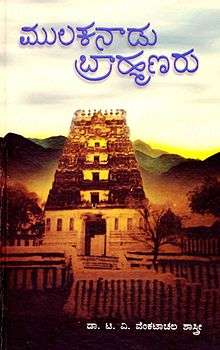
- Sastry, T. V. Venkatachala (1972)- Sāhitya Manthana[References 16]
- Sastry, T. V. Venkatachala (1973)- Kannaḍa Nēminatha Purāṇagaḷa Taulanika Adhyayana[References 17][References 18]
- Sastry, T. V. Venkatachala (1974)- Chamundaraya
- Sastry, T. V. Venkatachala (1979)- Shabdarthavihara[References 19]
- Sastry, T. V. Venkatachala (1980)- Jaina Bhagavatha Bharathagalu: Ondu Sameekshe[References 20]
- Sastry, T. V. Venkatachala (1981)- Prācīna Kannaḍa Sāhitya, Kelavu Nōṭagaḷu[References 21]
- Sastry, T. V. Venkatachala (1981)- Muru Sameekshegalu[References 22]
- Sastry, T. V. Venkatachala (1982)- Hosagannada Sahitya: Kelavu Notagalu
- Sastry, T. V. Venkatachala (1983)- Namma Karnataka[References 23]
- Sastry, T. V. Venkatachala (1983)- Pampa[References 24]
- Sastry, T. V. Venkatachala (1991)- Haleya Honnu[References 25]
- Sastry, T. V. Venkatachala (1999)- Śāstrīya: Samputagalu 1, 2, 3, 4, 5, 6[References 26][References 27]
- Sastry, T. V. Venkatachala (2000)- Mulakanāḍu Brāhmaṇaru: Samudāya, Saṃskrti[References 28]
- Sastry, T. V. Venkatachala (2007)- Kanakapura Emba Kānakāna Haḷḷiya Charitre[References 29]
- Sastry, T. V. Venkatachala (2009)- Kannaḍa abhijāta sāhitya : adhyayanada avakāśagaḷu, ahvānagaḷu[References 30]
Grammar
- Sastry, T. V. Venkatachala (1990)- Hosagannadada Vyakarana[References 31]
- Sastry, T. V. Venkatachala (1994)- Keshirajavirachita Shabdamanidarpanam[References 32]
- Sastry, T. V. Venkatachala (1997)- Keshirajavirachita Shabdamanidarpanam
- Sastry, T. V. Venkatachala (2001)- Darpaṇavivaraṇa[References 33][References 34]
Poetry
- Sastry, T. V. Venkatachala (1969)- Mahakavyalakshana[References 35][References 36]
- Sastry, T. V. Venkatachala (1987)- Kannaḍa Citrakāvya: Svarūpa, Itihāsa, Vimarśe[References 37][References 38]
Plays
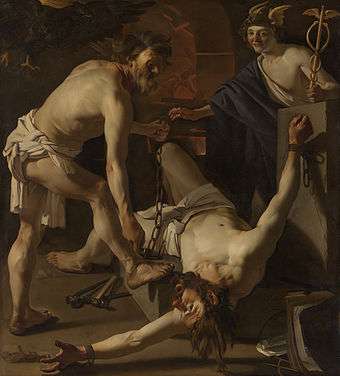
- Sastry, T. V. Venkatachala (1966)- Baddha Prometheus (Greek Original – "Prometheus Bound" by Sophocles)
- Sastry, T. V. Venkatachala (1971)- Kamsa
- Sastry, T. V. Venkatachala (1978)- Trakiya Pengal (Greek Original – "Trakiya Pengal" by Aeschylus)
- Sastry, T. V. Venkatachala (1981)- Hosagannada Mitravinda Govinda[References 39]
Prosody
- Sastry, T. V. Venkatachala (1970)- Kannaḍa Chandassu[References 40][References 41]
- Sastry, T. V. Venkatachala (1978)- Kannada Chandahswarupa[References 42]
- Sastry, T. V. Venkatachala (1989)- Kannaḍa Chandōvihāra[References 43]
- Sastry, T. V. Venkatachala (2003)- Kannada Chandomimamse[References 44]
- Sastry, T. V. Venkatachala (2007)- Chandombudhi[References 45]
- Sastry, T. V. Venkatachala (2013)- Kannaḍa Chandaḥkōśa[References 46]
Lexicography
- Sastry, T. V. Venkatachala (1971)- Śrīvatsa nighaṇṭu[References 47][References 48]
- Sastry, T. V. Venkatachala (1977)- Kannada Ratnakosha
- Sastry, T. V. Venkatachala (1994)- Gajashastrashabdakosha
- Sastry, T. V. Venkatachala (2004)- Granthasampadhana Paribhashakosha[References 49]
Biographies
- Sastry, T. V. Venkatachala (1980)- Mahamahopadhyaya R. Shamasastry
- Sastry, T. V. Venkatachala (1983)- Rao Bahadur M. Shama Rao
- Sastry, T. V. Venkatachala (1985)- Sahitya Shilpigalu[References 50]
- Sastry, T. V. Venkatachala (1995)- A. R. Krishnashastry
- Sastry, T. V. Venkatachala (2002)- Mārgadarśaka Mahanīyaru[References 51]
- Sastry, T. V. Venkatachala (2004)- Bhārataratna Sir M. Viśvēśvarayyanavara Pūrvajaru[References 52]
- Sastry, T. V. Venkatachala (2005)- Aaptaru Acharyaru
- Sastry, T. V. Venkatachala (2005)- Sri Sahajanandabharathi Swamigalu
- Sastry, T. V. Venkatachala (2007)- Dr A. Venkatasubbaiahanavaru
Editorship
- Sastry, T. V. Venkatachala (1971)- Kavyasanchaya – Part 1 (Co-edited with others)
- Sastry, T. V. Venkatachala (1973)- Srikanthika: Prof S. Srikanta Sastri Felicitation Volume
- Sastry, T. V. Venkatachala (1974)- Kannada Adhyayana Samstheya Kannada Sahitya Charitre Samputa 1 – 5
- Sastry, T. V. Venkatachala (1973–1993)- Epigraphia Carnatica
- Sastry, T. V. Venkatachala (1975)- Samshodhana Lekhanagalu – S. Srikanta Sastri (Co-edited with others)
- Sastry, T. V. Venkatachala (1970–1975)- Prabhuddha Karnataka
- Sastry, T. V. Venkatachala (1976–1995)- Kannada Sahitya Parishattina Kannada Nighantu
- Sastry, T. V. Venkatachala (1978)- Kavyasanchaya – Part 2 (Co-edited with others)
- Sastry, T. V. Venkatachala (1978–79)- Karnataka: Kannada Vishaya Viswakosha
- Sastry, T. V. Venkatachala (1982–92)- Karnataka Lochana
- Sastry, T. V. Venkatachala (1983)- Swasthi – T. S. Shamarayara Felicitation Volume
- Sastry, T. V. Venkatachala (1986)- Prakthana – R. Narasimhacharyara Lekhanagalu, Bashanagalu
- Sastry, T. V. Venkatachala (1986)- Prof D. L. Narasimhacharyara Rudranatakopanyasagalu
- Sastry, T. V. Venkatachala (1986)- S. G. Narasimhacharyara Kavithegalu
- Sastry, T. V. Venkatachala (1987)- Gamaka Manjusha
- Sastry, T. V. Venkatachala (1987)- Chamarasa (Co-edited with others)
- Sastry, T. V. Venkatachala (1988)- Gadya Kusumanjali (Co-edited with others)
- Sastry, T. V. Venkatachala (1988)- Bahubhashika Nighantu Yojane – Asian Studies Association (Chennai)
- Sastry, T. V. Venkatachala (1990)- Kannada Kavigalu Kanda Gommateshwara
- Sastry, T. V. Venkatachala (1991)- Anukarana Gita Lahari
- Sastry, T. V. Venkatachala (1991)- Kannada Chennudi[References 53]
- Sastry, T. V. Venkatachala (1991)- Kavyavahini: Dasara Kavisammelanada Kavanagalu
- Sastry, T. V. Venkatachala (1992)- Kavyasriranga: Dasara Kavisammelanada Kavanagalu
- Sastry, T. V. Venkatachala (1992)- Alauddin mathu Adbuthadeepa
- Sastry, T. V. Venkatachala (1992)- Janapriya Prachinasahityamale
- Sastry, T. V. Venkatachala (1993)- Prakrit Adhyayana Mathu Samshodhana Rashtriya Samsthe
- Sastry, T. V. Venkatachala (1993)- Rashtriya Viswakosha Kendra – Bhubaneswar
- Sastry, T. V. Venkatachala (1993)- Prachina Bharatiya Sahitya Sankalana Yojane
- Sastry, T. V. Venkatachala (1995)- Abhijnana – Dr. K. Krishnamurthy Felicitation Volume
- Sastry, T. V. Venkatachala (1995)- Pampakavi Virachitam Aadipuranam – S. G. Narasimhachar
- Sastry, T. V. Venkatachala (1998)- Kannada Sahitya Parishathina Kannada–Kannada–English Nighantu (1)
- Sastry, T. V. Venkatachala (1999)- Mudramanjusha
- Sastry, T. V. Venkatachala (2000)- Mulukanadu Mahaniyara Granthamale
- Sastry, T. V. Venkatachala (2001)- Mysore Mulukanadu Sabha (R) & Mulukanadu Charitable Trust
- Sastry, T. V. Venkatachala (2001)- Dr A. Venkatasubbaiahanavara Samshodhana Lekhanagalu
- Sastry, T. V. Venkatachala (2002)- Mulukanadu Siri
- Sastry, T. V. Venkatachala (2003)- Kannada Kavyagala Alankaragalu – Kannada Sahitya Parishathu
- Sastry, T. V. Venkatachala (2003)- Siribhuvalaya[References 54]
- Sastry, T. V. Venkatachala (2005)- Kavyajinashtakagalu
- Sastry, T. V. Venkatachala (2006)- Boppannapanditana Gommatajinendra Gunastavam
- Sastry, T. V. Venkatachala (2007)- Pampasamputa[References 55]
- Sastry, T. V. Venkatachala (2008)- Karyakarisamithi Sadasya – B. M. Sri Smaraka Pratishthana
Translations
- Sastry, T. V. Venkatachala (1986)- Vedam Venkataraya Sastri
- Sastry, T. V. Venkatachala (1987)- Harivamshapuranasaara
- Sastry, T. V. Venkatachala (2002)- Karnaparyana Neminatha Purana Kathasaara
- Sastry, T. V. Venkatachala (2002)- Ardhanemi Purana Kathasara, Vastu Vimarshe
Essays
- Sastry, T. V. Venkatachala (1975)- Kavyachitragalu
- Sastry, T. V. Venkatachala (1982)- Saddentembara Ganda
- Sastry, T. V. Venkatachala (1990)- Melugāḷiya Mātugaḷu: Tombattu Cintanegaḷu[References 56][References 57]
- Sastry, T. V. Venkatachala (2002)- Udāracaritaru Udāttaprasaṅgagaḷu[References 58][References 59]
Bibliographical work
- Sastry, T. V. Venkatachala (1966)- A Descriptive Catalogue of Kannada Manuscripts in the Osmania University Library (Co-edited)
- Sastry, T. V. Venkatachala (1978)- A Bibliography of Karnataka Studies – Vol I[References 60]
- Sastry, T. V. Venkatachala (1997)- A Bibliography of Kannada Ramayana
- Sastry, T. V. Venkatachala (1998)- A Bibliography of Karnataka Studies - Vol II[References 61]
Recognition

Dr T. V. Venkatachala Sastry's vast contribution to world of Kannada Literature has been time and again acknowledged from various quarters with several awards and accolades. He is also recipient of the prestigious "Karnataka Sahitya Akademi Award" (Honorary) for the year 1997. He even presided over the Dharmasthala Literary Festival in the year 2002. Some of the prominent awards are listed here.[References 62]
- "Kannada Chandassu" (Kannada Sahitya Akademi) (1970)
- "Kannada Chitrakavya" (Kannada Sahitya Akademi) (1987)
- "Kannada Chandovihara" (Kannada Sahitya Akademi) (1989)
- "Karnataka State Devaraja Bahadur Award" (1972)
- "Mysore Viswavidhyalaya Suvarnamahotsava Award" (1978)
- "Mysore Viswavidhyalaya T. N. Srikantaiah Smaraka Award" (1978)
- "Dharwad Vidhyavardhaka Sangha Award" (1978)
- "Karnataka State Devaraja Bahadur Award" (1978)
- "Mysore Viswavidhyalaya T. N. Srikantaiah Smaraka Award" (1986)
- Mysore 'Granthaloka' Newspaper "Writer of the year" Award (1987)
- "Karnataka Sahitya Akademi Award" for best written work (1987)
- "I.B.H Sikhsana Trust, Mumbai Award" (1987)
- "University of Mysore Golden Jubilee Award" (1987)
- "Kannada Sahitya Parishathina Vajramahotsava Award" (1977)
- "Karnataka State Award" (1988)
- Felicitation from "S. B. Joshi Vicharavedike" (1994)
- Award for lifetime contribution from Shravanabelagola Vidyapeeta (1996)
- Honorary Award from "Karnataka Sahitya Akademi" (1997)
- "Sediyapu" Award, Udupi (1998)
- "Chidananda" Award, Bangalore (2001)[References 63]
- "Bhashasamman" Award from Sahitya Akademi, New Delhi (2002)
- "S. B. Joshi" Award, Karnataka Sangha, Shimoga (2003)
- "Chavundaraya" Award, Kannada Sahitya Parishath (2003)[References 64]
- "Alvas Nudisiri Award", Moodabidri (2005)[References 65]
- "Sri Krishna" Award from Pejawar Mutt Swamiji (2006)
- "Aryabhatta" Award, Bangalore (2006)
- "Masti" Award, Bangalore (2008) (pictured)[References 66]
- "Pampa" Award for Lifetime Contribution (2008)[References 67]
Legacy

He is remembered by generations of students who are grateful for his endearing, affectionate and scholarly devotion. His colleagues and scholars have time and again complemented his erudition, depth of knowledge, scholarship and humanity. Probably, the noted Kannada litterateur Dr M. Chidananda Murthy's tribute to Dr T. V. Venkatachala Sastry summarises his persona the best:[References 68]
| “ | Dr T. V. Venkatachala Sastry's multifaceted learning, brilliant memory and refusal to propose anything without first backing it with evidence is indeed commendable. His writings are characteristically devoid of presumptions. Even while quoting and discussing scholars & writers of yore, there is a conspicuous absence of narrow minded, sectarian nepotism. In fact, to even question his ideas, one has to first think long and think hard!- Dr M. Chidananda Murthy | ” |
Dr T. V. Venkatachala Sastry currently resides at his residence in Mysore, India with his wife Venkatalakshmi and devotes his time to writing, reviewing, editing and critiquing literary works. As part of his felicitation for lifetime contribution to Kannada language & literature, two festschrift volumes "Srimukha" & "Kannada Meru"[References 69] were presented.
External links
| Wikimedia Commons has media related to T. V. Venkatachala Sastry. |
- T. V. Venkatachala Sastry – A Brief Biography
- T. V. Venkatachala Sastry – Biographical Memoir
- T. V. Venkatachala Sastry | Classical Kannada
- T. V. Venkatachala Sastry - Literature & Personality
References
- ↑ Sastri, S. Srikanta. "T. V. Venkatachala Sastry". Features Column. www.srikanta-sastri.org. Retrieved 25 January 2014.
- ↑ India, Cultural. "CulturalIndia". Biography. CulturalIndia.org. Retrieved 25 January 2014.
- ↑ Books, Google. "Encyclopedia of Indian Literature: From Sasay to Zogot". Book. Sahitya Akademi. Retrieved 25 January 2014.
- ↑ Kannada, Classical. "ClassicalKannada". Biography. Government of India. Retrieved 25 January 2014.
- ↑ Hindu, The. "T. V. Venkatachala Sastry Felicitation". The Hindu Article. The Hindu. Retrieved 25 January 2014.
- ↑ Itihasa, History. "T. V. Venkatachala Sastry – Biography". Biography. Dr S. Srikanta Sastri Pratisthana. Retrieved 25 January 2014.
- ↑ Sastri, S. Srikanta. "Featured: T. V. Venkatachala Sastry". Biograohy. www.srikanta-sastri.org. Retrieved 27 January 2014.
- ↑ Kannada, Classical. "T.V.Venkatachala Sastry". Biography. ClassicalKannada.org. Retrieved 27 January 2014.
- ↑ Herald, Deccan. "Deccan Herald – T. V. V. Sastry". Newspaper Article. Deccan Herald. Retrieved 25 January 2014.
- ↑ Sastry, T. V. Venkatachala. "Dr. T.V. Venkatachala Shastry". Biography. CulturalIndia.org. Retrieved 27 January 2014.
- ↑ Sastry, T. V. Venkatachala. "T. V. Venkatachala Sastry – A Biography". A Biography. www.itihasa.in. Retrieved 27 January 2014.
- ↑ Sastry, T. V. Venkatachala. "Institute of Kannada Studies" (PDF). Information Page. University of Mysore. Retrieved 29 January 2014.
- ↑ Mysore, University of. "Detailed History on Official University Website" (PDF). History of "Institute of Kannada Studies". University of Mysore. Retrieved 27 January 2014.
- ↑ Press, Word. "Needed: Indian Institute of Humanities". Article. Sydney Pollack. Retrieved 25 January 2014.
- ↑ Journals Online, Cambridge; Sydney Pollack (1 February 1998). "Th Cosmopolitan Vernacular". The Journal of Asian Studies. Cambridge Journals. 57 (1): 6–37. Retrieved 25 January 2014.
- ↑ Sastry, T. V. Venkatachala. "Sāhitya Manthana". Catalogue. Library of Congress. Retrieved 27 January 2014.
- ↑ Sastry, T. V. Venkatachala. "Kannaḍa Nēminatha purāṇagaḷa taulanika adhyayana". Catalogue. Maisūru: Prasārāṅga, Maisūru Viśvavidyanilaya, 1973. Retrieved 27 January 2014.
- ↑ Śastrī, Ti. Vi. Veṅkaṭācala. "Kannaḍa Nēminatha purāṇagaḷa taulanika adhyayana : Cāvuṇḍarāyapurāṇa bhāgavāda Nēmīśvarapurāṇa mattu Karṇapārya Nēmicandrara Nēminātha purāṇagaḷu". Bodleian Library Catalogue. Prasārāṅga, Maisūru Viśvavidyanilaya. Retrieved 29 January 2014.
- ↑ Sastry, T. V. Venkatachala. "Śabdārtha vihāra". Catalogue. Library of Congress. Retrieved 27 January 2014.
- ↑ Sastry, T. V. Venkatachala. "Jaina Bhāgavata Bhāratagaḷu, ondu samīkṣe : Jenasēna Guṇabhadrara, ...". Catalogue. Library of Congress. Retrieved 27 January 2014.
- ↑ Sastry, T. V. Venkatachala. "Prācīna Kannaḍa sāhitya, kelavu nōṭagaḷu". Catalogue. Library of Congress. Retrieved 27 January 2014.
- ↑ Sastry, T. V. Venkatachala. "Mūru samīkṣegaḷu". Catalogue Record. Library of Congress. Retrieved 27 January 2014.
- ↑ Sastry, T. V. Venkatachala. "Namma Karnāṭaka". Catalogue. Library of Congress. Retrieved 27 January 2014.
- ↑ Sastry, T. V. Venkatachala. "Pampa". Catalogue. Library of Congress. Retrieved 27 January 2014.
- ↑ Sastry, T. V. Venkatachala. "Haḷeya honnu". Catalogue. Library of Congress. Retrieved 27 January 2014.
- ↑ Sastry, T. V. Venkatachala. "Śāstrīya". Catalogue. Sapna Book House. Retrieved 27 January 2014.
- ↑ Śāstrī., Ṭi. Vi. Veṅkaṭācala. "Śāstrīya". Bodleian Library Catalogue. Sapna Book House. Retrieved 29 January 2014.
- ↑ Sastry, T. V. Venkatachala. "Mulakanāḍu Brāhmaṇaru: Samudāya, Saṃskr̥ti". Catalogue. Beṅgaḷūru: Mulakanāḍu Mahāsaṅgha, 2000. Retrieved 27 January 2014.
- ↑ Sastry, T. V. Venkatachala. "Kanakapura emba Kānakāna Haḷḷiya caritre". Catalogue. Beṅgaḷūru : Pustakaśakti Prakāśana, 2007. Retrieved 27 January 2014.
- ↑ Sastry, T. V. Venkatachala. "Kannaḍa abhijāta sāhitya : adhyayanada avakāśagaḷu, ahvānagaḷu". Catalogue. Hampi : Prasārāṅga, Kannaḍa Viśvavidyālaya. Retrieved 27 January 2014.
- ↑ Library, ciil. "Ciillibrary". Catalogue. www.ciillibrary.org. Retrieved 25 January 2014.
- ↑ Kannada, Classical. "ClassicalKannada". Book Listing. www.classicalkannada.org. Retrieved 25 January 2014.
- ↑ Raṅganāthan, sampādakaru Māvinakere (2010). Māsti samagra sāhitya avalōkana. Kolāra: Ḍā. Māsti Veṅkaṭēśa Ayyaṅgār Ṭrasṭ. ISBN 9788128011832.
- ↑ Sastry, T. V. Venkatachala. "Darpaṇavivaraṇa". Catalogue. Library of Congress. Retrieved 27 January 2014.
- ↑ Library, Open. "OpenLibrary". Catalogue. OpenLibrary.org. Retrieved 25 January 2014.
- ↑ Sastry, T. V. Venkatachala. "Mahākāvya lakṣaṇa". Catalogue. Library of Congress. Retrieved 27 January 2014.
- ↑ Online, Sapna. "SapnaOnline". Book Listing. Sapna. Retrieved 25 January 2014.
- ↑ Sastry, T. V. Venkatachala. "Kannaḍa citrakāvya : svarūpa, itihāsa, vimarśe". Catalogue. Library of Congress. Retrieved 27 January 2014.
- ↑ Sastry, T. V. Venkatachala. "Hosagannaḍa Mitravindā Gōvinda". Catalogue. Library of Congress. Retrieved 27 January 2014.
- ↑ Sastry, T. V. Venkatachala. "Kannaḍa chandassu". Catalogue. Library of Congress. Retrieved 27 January 2014.
- ↑ Sastry, T. V. Venkatachala. "Kannaḍa Chandassu". Catalogue. Library of Congress. Retrieved 27 January 2014.
- ↑ Sastry, T. V. Venkatachala. "Kannada chandaḥsvarūpa". Catalogue. Library of Congress. Retrieved 27 January 2014.
- ↑ Sastry, T. V. Venkatachala. "Kannaḍa chandōvihāra". Catalogue. Geetha Book House. Retrieved 27 January 2014.
- ↑ Adda, Book (2003). Kannada Chandomimamse. Mysore: D.V.K.Murthy.
- ↑ Kannada, Classical. "Chandombudhi". Review. ClassicalKannada. Retrieved 25 January 2014.
- ↑ Sastry, T. V. Venkatachala. "Kannaḍa Chandaḥkōśa". Catalogue. Library of Congress. Retrieved 27 January 2014.
- ↑ Cat, World. "WorldCat – Srivatsa Nighantu". Catalogue. WorldCat.org. Retrieved 25 January 2014.
- ↑ Sastry, T. V. Venkatachala. "Śrīvatsa nighaṇṭu". Catalogue. Library of Congress. Retrieved 27 January 2014.
- ↑ Sastry, T. V. Venkatachala. "Granthasampadana paribhasakosa". Catalogue. Library of Congress. Retrieved 27 January 2014.
- ↑ Sastry, T. V. Venkatachala. "Sāhitya śilpigaḷu". Catalogue. Library of Congress. Retrieved 27 January 2014.
- ↑ Sastry, T. V. Venkatachala. "Mārgadarśaka mahanīyaru : nalavattāru mandi gaṇyavyaktigaḷa jīvana ...". Catalogue. Sapna Book House. Retrieved 27 January 2014.
- ↑ Sastry, T. V. Venkatachala. "Kannaḍa cennuḍi : mūla tātparyasahita Kannaḍa subhāṣitagaḷa br̥hat ...". Catalogue. Beṅgaḷūru : Suvidyā Prakāśana, 1991. Retrieved 27 January 2014.
- ↑ Science, Virtue. "VirtueScience – Siribhoovalaya". Review. VirtueScience.com. Retrieved 25 January 2014.
- ↑ Online, Sapna. "Pampa Samputa". Book Listing. Sapna. Retrieved 25 January 2014.
- ↑ Melugaliya, Matugalu. "Book Listing". Book Listing. Amazon.com. Retrieved 25 January 2014.
- ↑ Sastry, T. V. Venkatachala. "Melugāḷiya mātugaḷu : tombattu cintanegaḷu". Catalogue. Beṅgaḷūru : Abhijñāna, 2002. Retrieved 27 January 2014.
- ↑ Martin, Mary. "MaryMartin". Book Listing. MaryMartin.com. Retrieved 25 January 2014.
- ↑ Sastry, T. V. Venkatachala. "Udāracaritaru udāttaprasaṅgagaḷu". Catalogue. Beṅguḷūru : Vi. Si. Sampada, 2002. Retrieved 27 January 2014.
- ↑ Sastry, T. V. Venkatachala. "A bibliography of Karnataka studies". Catalogue. Library of Congress. Retrieved 27 January 2014.
- ↑ T. V. Venkatachala Sastry, C. R. Leela Subramanyam. "A bibliography of Karnataka studies". Bodleian LIbrary Catalogue. Prasārānga: University of Mysore. Retrieved 29 January 2014.
- ↑ Sastri, S. Srikanta. "Awards of T. V. Venkatachala Sastry". List of Awards. www.srikanta-sastri.org. Retrieved 27 January 2014.
- ↑ Saundattimath, Sangamesh. "Chidananda Award for Sangamesh Saundattimath". News Article. The Hindu. Retrieved 27 January 2014.
- ↑ Sastry, T. V. Venkatachala (November 2003). "Chavundaraya Award". Jaina Voice. Retrieved 27 January 2014.
- ↑ Sastry, T. V. Venkatachala (24 October 2005). "Ten persons receive Alva's Nudisiri Award". The Hindu. Retrieved 27 January 2014.
- ↑ Sastry, T. V. Venkatachala (15 June 2008). "Masti Award presented". The Hindu. Retrieved 27 January 2014.
- ↑ Sastry, T. V. Venkatachala Sastry. "Pampa Award". Awards Listing. Moda Sattva. Retrieved 27 January 2014.
- ↑ Sastri, S. Srikanta. "T. V. Venkatachala Sastry". Biographical Sketch. www.srikanta-sastri.org. Retrieved 25 January 2014.
- ↑ Sastry, T. V. Venkatachala. "Kannaḍamēru". Catalogue. Library of Congress. Retrieved 27 January 2014.